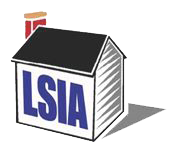The weather has finally turned and humid days have already arrived, but that’s not to say that comfortable evenings on the porch or patio aren’t on the horizon. As friends drop by and the sound of the Orioles on the radio fills the backyard, many of us turn to the grill for a quick burger or dog. The more dedicated might spend the day tending coals and adjusting heat to perfect that chicken, rack of ribs or pork shoulder. Whatever and wherever your culinary adventures take you, safety around the grill for you and your family should be your first priority.
In 2012 alone, over 16,000 emergency room visits were the result of thermal burns caused by grills and 16% percent of structure fires were attributed to grills. Are grills dangerous? No more than a car or a pocketknife but even the most advanced grillmaster can benefit from a refresher course from your owner’s manual or the wealth of videos available on YouTube.
It’s tempting to get started as soon as possible, but don’t forget to take the time to properly clean your grill. Many of us grill throughout the winter thanks to gas grills, and even if the grill sat in the snow, it’s important to check your propane tanks for signs of rust or a faulty valve. Like any metal product, the elements will take their toll over time. New tanks are relatively inexpensive and tank exchange services make keeping the tank full a cinch. Be sure to make sure that you also inspect any hoses as well as your controls and burners. Some insects and arachnids enjoy the tight confines of the burner jets and can affect performance and gas flow. This is also an excellent time to make sure that your pans and covers are also clean. On most gas grills these parts are easily removed and cleaned in your utility sink or with a garden hose and scouring sponge. Removing last season’s buildup reduces the chance of flare-ups and will enhance your grilling experience. It also leads to a longer life for your grill.
Grill placement is just as important when it comes to an enjoyable grill session. It’s tempting to place the grill in a position near the back door or even on a porch. In the event of a flare up, any overhang, canopy, or decks and rails could easily ignite and lead to a structure fire. Always keep the grill away as far as possible from structures and be sure it is on a level surface away from dry grass. It may be inconvenient to take a few extra steps but it beats a visit from the local fire department. It’s great to get the kids involved with grilling but just like any other appliance, remember that they should be supervised and never left unattended with the grill.
Finally, don’t forget to always be alert and aware when lighting any grill. A little lighter fluid can go a long way on a charcoal grill and gas grill hoods should always be open when igniting. If you continue to smell propane while cooking, or after the grill has been extinguished, check your connections and when in doubt move away from the grill and dial 911. Remember these tips for a safe and enjoyable summer and keep enjoying a great American tradition (witty apron optional). For more grill safety tips, visit www.nfpa.org.

